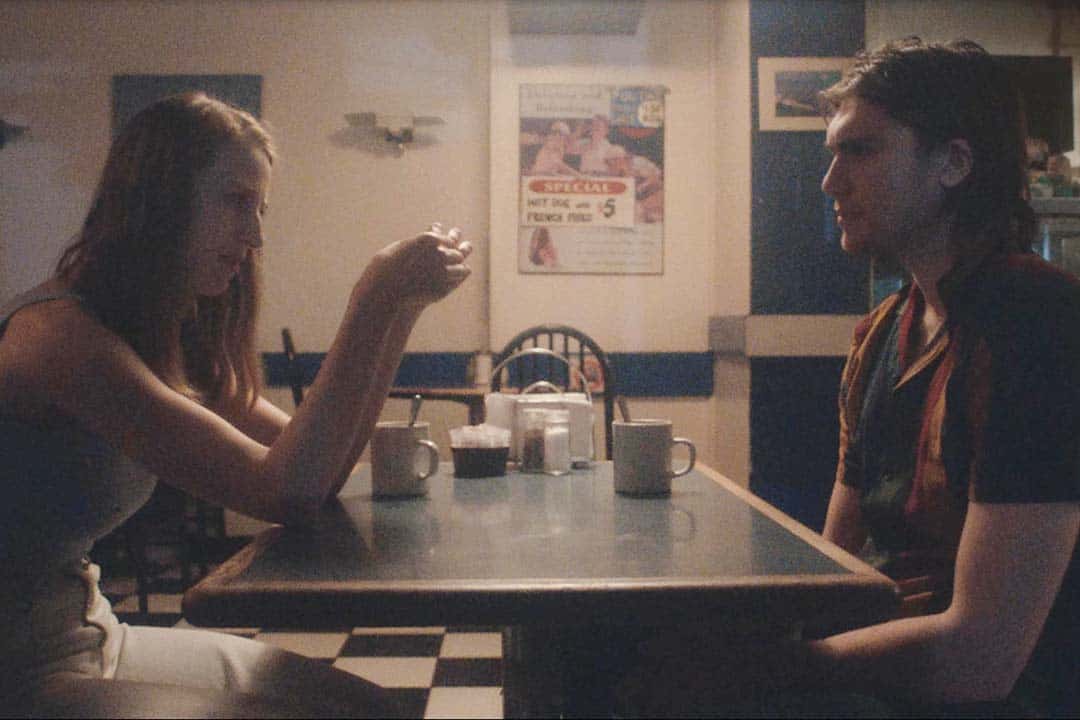The bottom floor office of a Wellington Street bank throws a retirement party for office mom Susan. Like most retirements, it’s a happy affair, with cake and cards abound.
But Susan’s departure sends 25-year-old employee Rosy, played by Ellie Moon, into a tailspin. Rosy, who ‘aged out’ of foster care before being adopted, relied on Susan to mother her. Now that Susan is gone, Rosy has trouble managing her anxiety at the office and struggles socially.
Which is why her chipper coworker Helen, Leah Doz, suggests she look into Adult Adoption’s title conceit: a website where those who have recently aged out of adoption can meet new parent figures. Rosy meets two prospective parents on the site, and the rest of the 90-minute comedy tracks how these meetings — which are like parent-child Tinder dates — both help and hinder Rosy’s battle against loneliness.
Director Karen Knox exaggerates Rosy’s immaturity with hyperbolically quirky design: her room is entirely pastel toned, she has a whole cupboard of Kraft Dinner, her pyjamas have strawberries on them, and her pink headphones spray forth a torrent of bubblegum pop. Rosy’s apartment seems frozen in time: a parallel to Rosy herself.
But it’s not just her apartment. Every space that Rosy inhabits heightens our sense of her stuckness. She remains in the same room at work while Helen gets a big time promotion and moves to a higher floor. She gets coffee at a Greek bakery with a morosely blue interior every morning — the establishing shot places it as Akropolis Pastries & Pies on Danforth. Although on her first adult adoption date she ventures out of her comfort zone and goes to a fancy restaurant, this uncharacteristic adventurousness is undercut by her choice to return there on all her following dates.
Even the outdoor scenes feel claustrophobic. Cinematographer J Stevens shoots many of them in shallow focus, which leaves the foregrounded Rosy sharply in focus against an out of focus background. This turns the Toronto cityscape into a collage of blurred light. Though buildings and bustle surround Rosy, we don’t see them — an apt visual metaphor for Rosy’s extreme self consciousness.
The film’s climax shakes up this gauzy aesthetic. After reuniting with a friend from foster care, Rosy ventures to a space totally foreign to her: a dance club. As Rosy sweats, spins, and smiles, the camera montages kinetically and party lights flash between bright reds, blues, and greens. Gone are the pastels of Rosy’s bedroom — as she grows up, her environment’s colours saturate with her.
After Rosy exits the club, Toronto takes on new life for her. In an exhilarating sequence, Rosy walks through a park and takes in the natural beauty around her. No more blurs of light; the trees, the earth, the sky — everything is visible here. And as the camera’s focus deepens, the score too opens up. Composer Torquil Campbell, who supplied the rest of the film with quietly swelling instrumentals, makes his voice heard on “The Very Thing” by his band Stars.
The song asks: “Who’s going to love you when you reach the end?” So it’s appropriate that as the film reaches its own end, Rosy begins to rethink her practices of self-love. The film initially uses trendy mindfulness techniques like crystals, affirmation meditations, and yoga as punchlines, but as Rosy matures, the film begins to treat them with more complexity.
Adult Adoption owes some stylistic debts to mumblecore, but thanks to its cast of Canadian acting vets and its nuanced attention to non-verbal characterization — Rosy’s character development can be tracked by how she opens coffee sugar packets — it rises above that genre’s trappings and coalesces into a bighearted snapshot of a millennial finding her way in contemporary Toronto.


